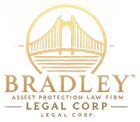Maximizing Returns and Minimizing Risks:
If you are already house hacking, chances are you have listened to Bigger Pockets. For those of you who are unfamiliar with this term, house hacking is a strategy to generate income from your residence, that anyone can do. The basic idea is where you purchase a property such as a four-bedroom house, and then rent out three rooms while occupying the fourth or purchasing a duple and residing in one unit while leasing out the other. This strategy enables you to oKset the mortgage expenses and potentially earn a profit.
A common question that always comes up to me is how to structure a house hacking deal eKectively to shield both the investment and you from potential legal issues? When you think about this from strictly an asset protection side, you must deal with managing multiple renters. When we talk about the 4-bedroom property, we are not talking about individual properties, but three distinct individual rooms and renters all under one roof.
While it might sound appealing to create one LLC for each room to isolate liability (for example, in case of mold issues), this approach is not eKective. It’s just wishful thinking. This oversimplified approach overlooks practical reality. The reality is that tenants is going to go after the property owner, which is you – rather than against a specific LLC tied to a single room.
So you are in a situation where you can’t separate out your liability from your tenants. While it may be challenging to entirely separate your liability from your tenants, one of the initial steps you should take is to secure adequate insurance coverage for your property, ensuring that each room is adequately protected. Now, from an asset protection perspective, it’s crucial to consider what you are going to do with the property from an overall strategy. The primary risk you are facing with house hacking lies not only in the vulnerability of the property itself being at risk, but your personal are exposed and at risk to potential legal liabilities. In the event of an incident involving a tenant on your property, you could face personal liability. If legal action is taken against you resulting in a judgment, it could have long-lasting consequences, potentially impeding your ability to invest in additional real estate until the judgment is resolved.
So what do we do?
What you want to do is place the entire property in a disregarded LLC. The LLC needs to be disregarded because you want to preserve your 121 capital gains exclusion. This way when you sell your property you can still exclude up to $250,000 in capital gains. One more additional thing that you can consider in your strategy is to set up another business entity that will act as a leasing agency, especially if you own other rental properties. Depending on your specific circumstances and tax objective, this leasing agency entity could take the form of a LP, another LLC, or a C-Corp. By having your tenants interact with the leasing agency entity for renal agreements, you establish an additional layer of separation between your tenants and your core business operations. This will give you an additional buKer between the tenants and your business. This approach can shield your assets and can also potentially yield tax benefits, depending on the structure of the leasing agency entity.
Assuming command of your financial, estate, and asset protection planning is essential for your peace of mind.
Let Bradley Legal Corp. assist you in achieving that peace of mind.
Call to schedule a legal consultation with an asset protection lawyer at (888) 773-9399
By: Brian T. Bradley, Esq.




